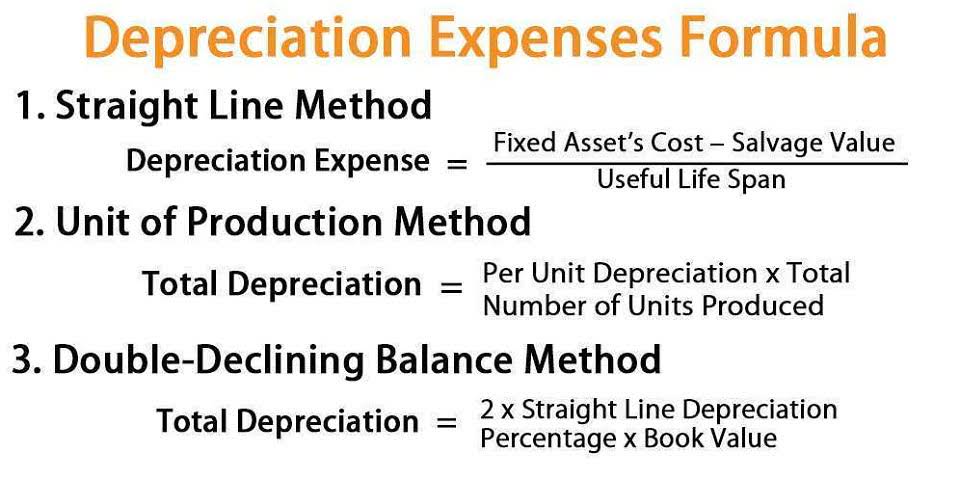
It’s not appropriate and is often illegal to use restricted funds for the wrong purpose. Only 32% of Americans surveyed report trusting churches and organized religion. This lack of trust may spring from many factors, but one that stands out is how churches use the funds they receive from their congregants. Using the example from above, if a small business bills a client $1,000 on March 1, you would record that $1,000 as income in March’s bookkeeping—even if the funds didn’t clear your account until April 15. By establishing a well-defined chart of accounts, creating a realistic budget and implementing internal controls, you’re laying the groundwork for strong financial stewardship in your church.

Integrates with accounting software
- ChurchTechToday is the #1 church technology website for pastors, communicators, and leaders.
- In conclusion, while both accrual and cash basis accounting have their merits, the former stands out for its depth, accuracy, and comprehensiveness.
- Unlike cash basis accounting, which provides a clear short-term vision of a company’s financial situation, accrual basis accounting gives you a more long-term view of how your company is faring.
- According to GAAP, if you exceed $25 million in annual revenue, then you are required to use the accrual method.
- By understanding the differences of accrual vs cash accounting methods, nonprofits can make more informed decisions, satisfy regulatory requirements, and ultimately, better serve their communities.
You can also integrate Donorbox with leading accounting software like QuickBooks to sync donation data in both systems and utilize it for your fund accounting needs. If thinking about church accounting makes you feel a little lost, don’t worry – you’re not alone! While it can be daunting, church accounting is a necessary step to build trust with your congregants and community while adhering to all IRS guidelines for churches. Plus, it can help you use donations correctly, which is crucial for gaining repeat donors. Read on to learn everything you need to know about accounting for churches, including how to get started.
What Should a Nonprofit Organization Do?

Perhaps the biggest need for church accounting rather than bookkeeping, is when an audit or review is required. An audit or review is often a compliance requirement when an outside reader is involved, such as a bank for a mortgage or a governmental agency for a grant. Audits and reviews typically require accrual basis financial statements, though modified-cash basis may be accepted in some scenarios. The accrual method creates a smooth flow of financials, helping everyone inside and outside of the organization understand how the nonprofit is operating and performing.
What Is Bookkeeping for Churches and Is It the Right Choice for Your Organization?
Chazin & Company is a premier provider of outsourced accounting and finance solutions for the nonprofit sector. Contact us to learn more about how to select the right accounting method and reach your overall financial goals. The Charity CFO helps over 150 nonprofits nationwide modernize, optimize and digitize their bookkeeping and accounting to save thousands of hours every year. An external audit, usually conducted annually, provides an unbiased review of the church’s financial statements. Learn more about bookkeeping for churches, what it means to outsource your church bookkeeping services, and understand if it is the correct route for your organization.
- Furthermore, this method helps maintain transparency and accountability, which are crucial for building trust with donors, board members, and regulatory authorities.
- The IRS does not require churches to file as many financial documents as other nonprofits, but there are still a few you must understand and file.
- Accrual basis accounting stands as a cornerstone in the world of finance and business.
- That’s why fund accounting is essential for churches, as it ensures compliance with and respect for these limitations.
- To keep this revenue stream, supporters must know their donations are being used correctly or as requested.
How to choose the right option for your business
- In other words, if you have a small stationery business that purchased paper supplies on credit in June, but didn’t actually pay the bill until July, you would record those supplies as a July expense.
- This statement provides a snapshot of the church’s financial position at a specific time, including assets, liabilities, and equity.
- If financial responsibilities are assigned to multiple people, then there’s an invisible sense of accountability among employees.
- Turn your receipts into data and deductibles with our expense reports, including IRS-accepted receipt images.
- Church accounting is the specialized system of financial management and reporting designed to meet the unique needs of religious organizations.
Nonprofits focused on accountability have different goals than organizations concentrated on profit. Since churches rely heavily on their donors, they must maintain the trust of their supporters. To keep this revenue stream, supporters must know their donations are being used correctly or as bookkeeping and payroll services requested. For-profits are only accountable to the regulations governing their business and are out to make as much money as possible to subsidize the owners’ income. Accrual based Accounting – You hire a contractor to do some yard work and he comes on May 31st. He records his revenue on May 31st because that is when the revenue for him was ‘earned’.
Auditing in Church Accounting
By mastering these financial reports, you gain the power to make informed decisions about your ministry’s future, fostering transparency and trust within your congregation. Financial statements are the language used to tell the story of your church’s financial health. Understanding these reports is vital for clear communication with both leadership and members.
Budgeting and Financial Planning: Charting Your Course

Cash basis accounting sounds so easy, and it retained earnings balance sheet would be if indeed every transaction could be recorded only when the money changes hands, but of course, our economy does not work that way. Bills are pre-paid, pledges are made, grants are deferred, funds are held in special reserve accounts, etc. Most accountants would agree true 100% cash accounting does not really exist. This phenomenon has come to be called “modified cash accounting.” Perhaps the biggest problem with modified cash accounting is that no two “modifications” are the same.

Accrual vs. cash basis: Which is better?
This is why we have written a series of helpful articles on running the finances at a nonprofit organization. We invite you to accounting for churches learn more by reading our articles on Outcome measures, improving reporting, and increasing efficiency. Learn even more by reading these two nonprofit success stories from our friends at Sage Intacct, and contact us for more details. Outsourced accounting from expert nonprofit accountants could be the secret sauce your organization needs to finally create the time, space, and resources to pursue the growth you’ve dreamed of. This statement provides a snapshot of the church’s financial position at a specific time, including assets, liabilities, and equity. Churches must adhere to federal laws concerning financial reporting and tax exemptions.
Fund accounting requires bookkeepers to create different funds for separate revenue and expenses. This type of bookkeeping is too complicated to use an Excel file, so your church must purchase reliable accounting software to keep track. Unlike cash basis accounting, which provides a clear short-term vision of a company’s financial situation, accrual basis accounting gives you a more long-term view of how your company is faring. In the world of nonprofit organizations, every dollar counts, and financial transparency is crucial. Accrual accounting, a method widely used and recommended, plays a vital role in creating a clear financial picture for nonprofit organizations. Funds accounting is a form of accrual accounting that is specific to nonprofits.


